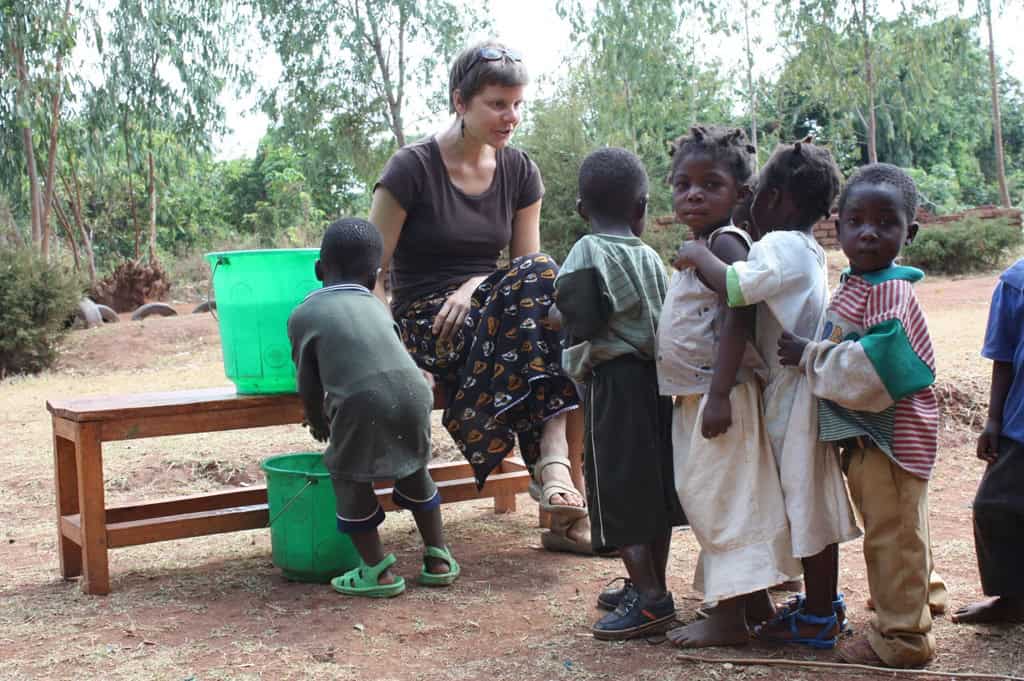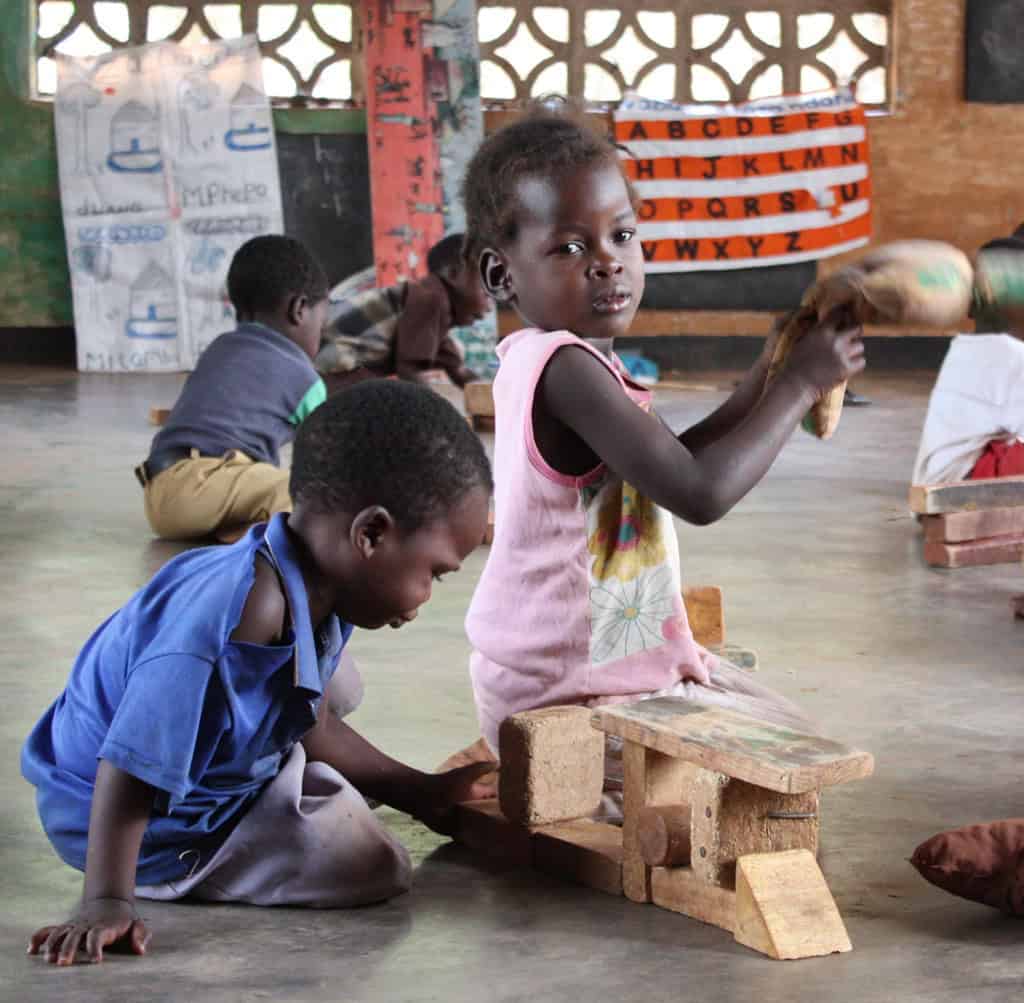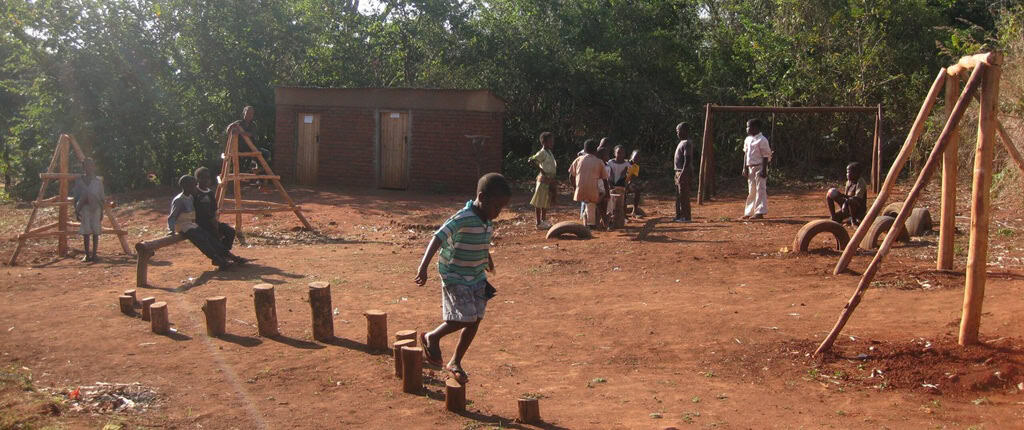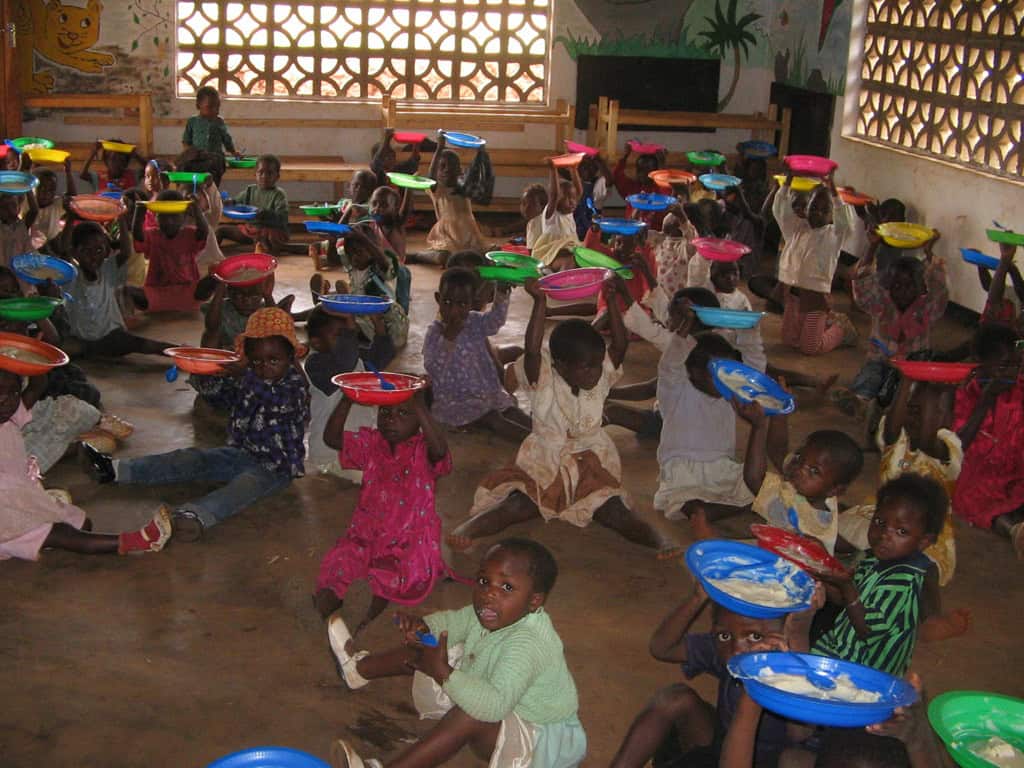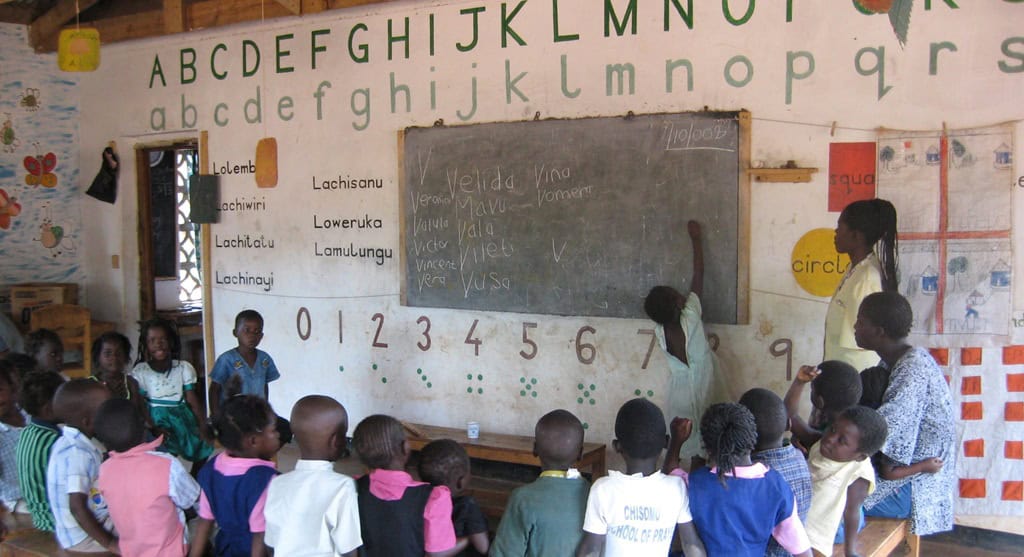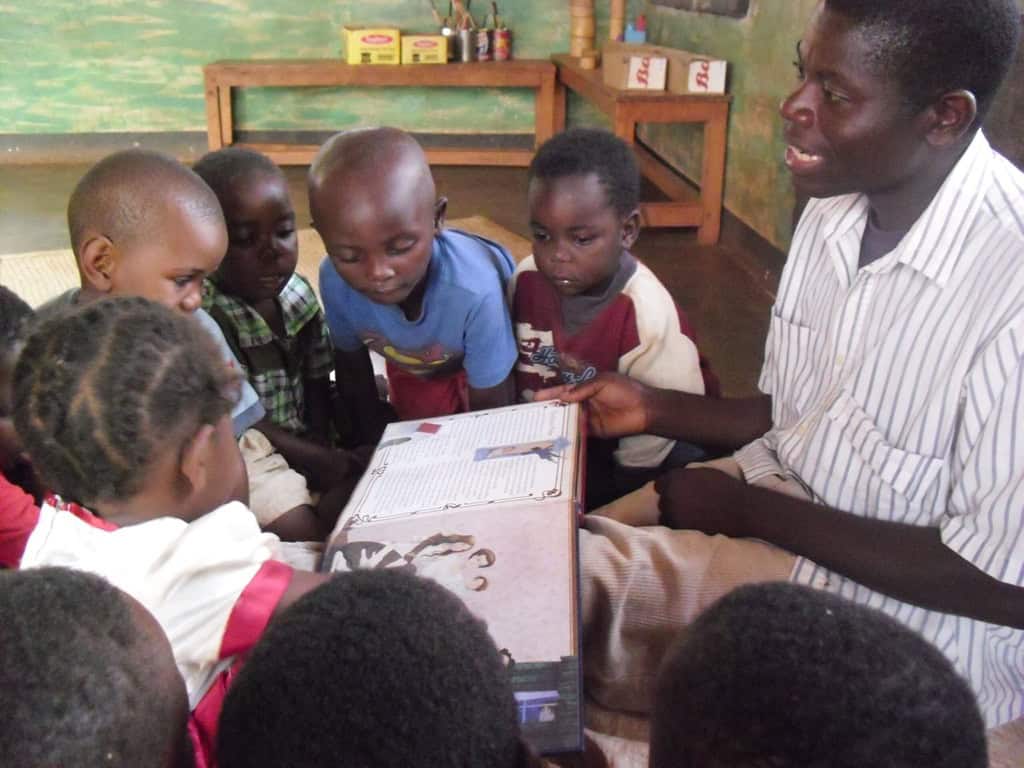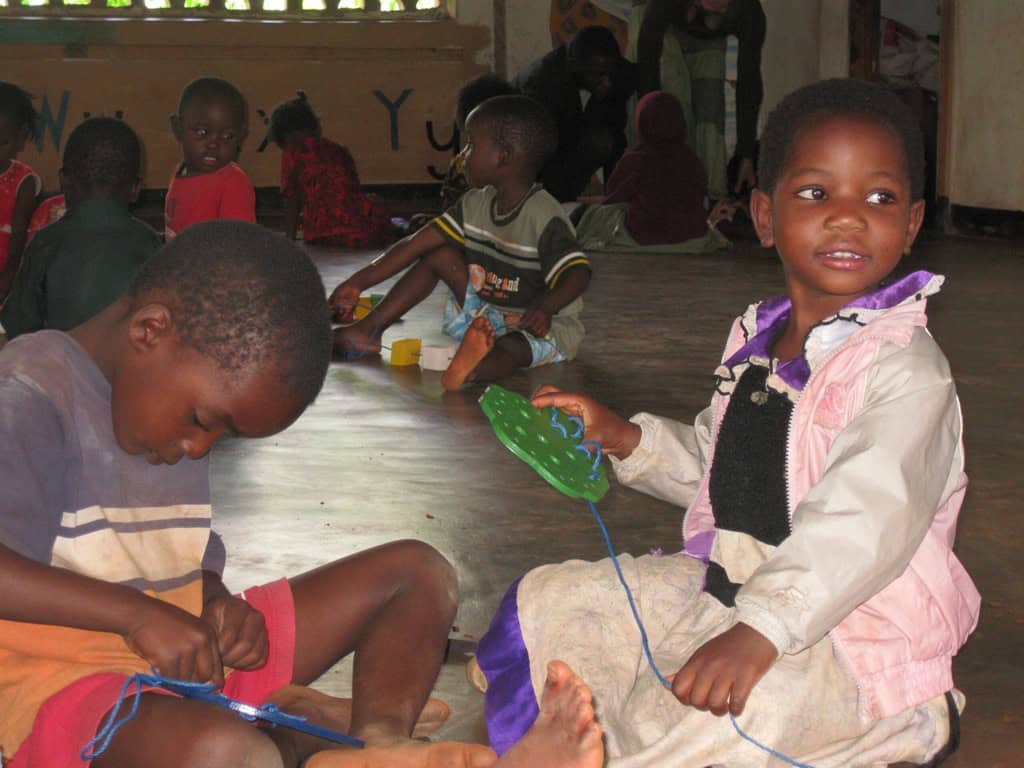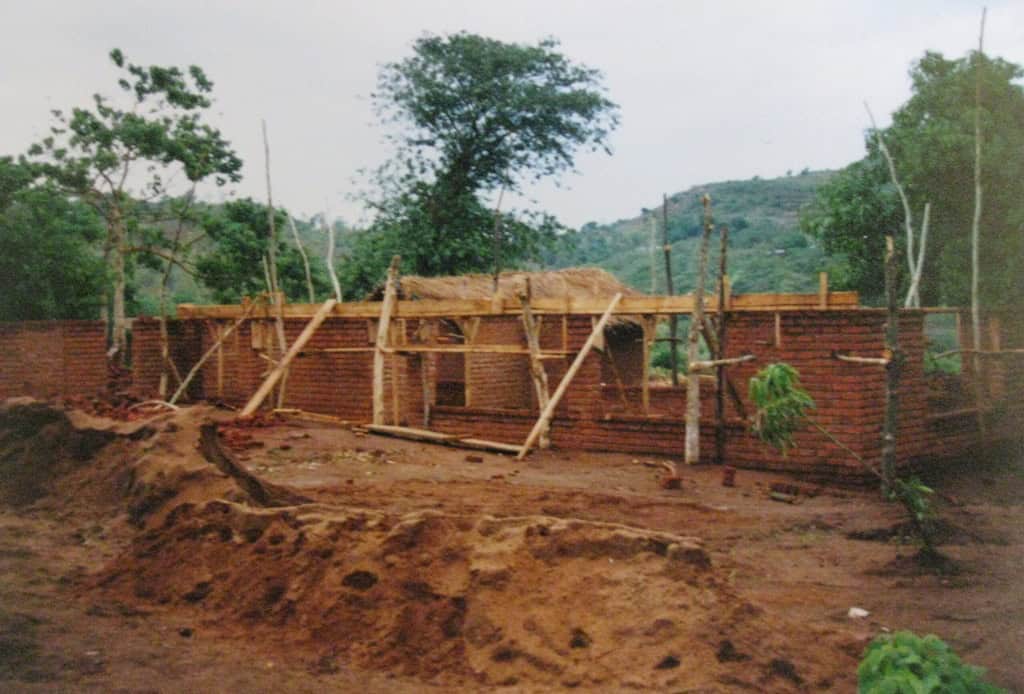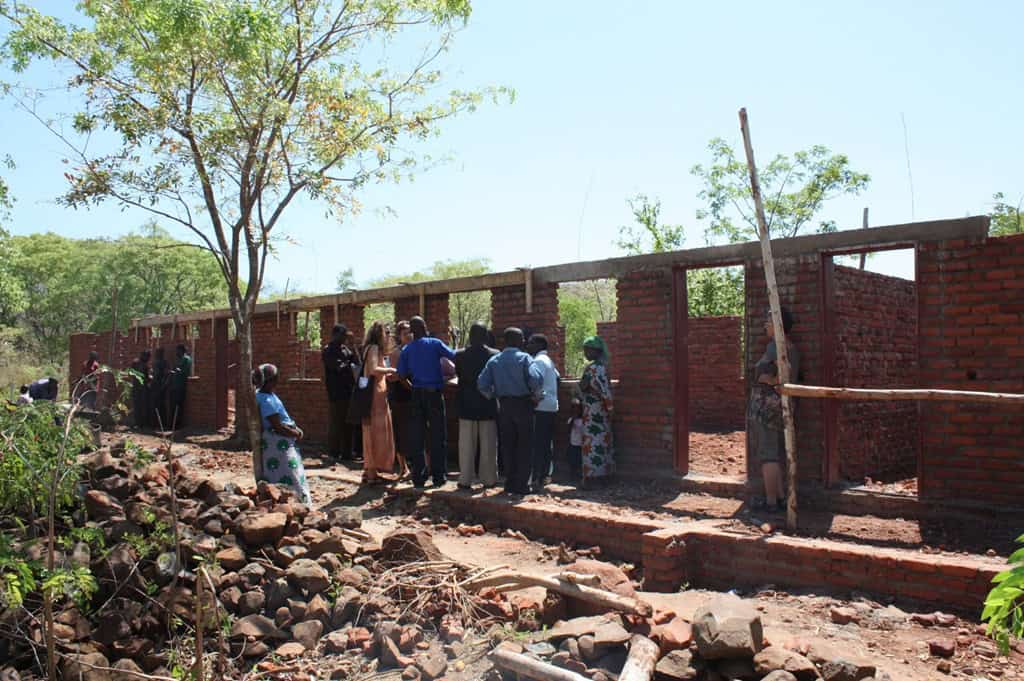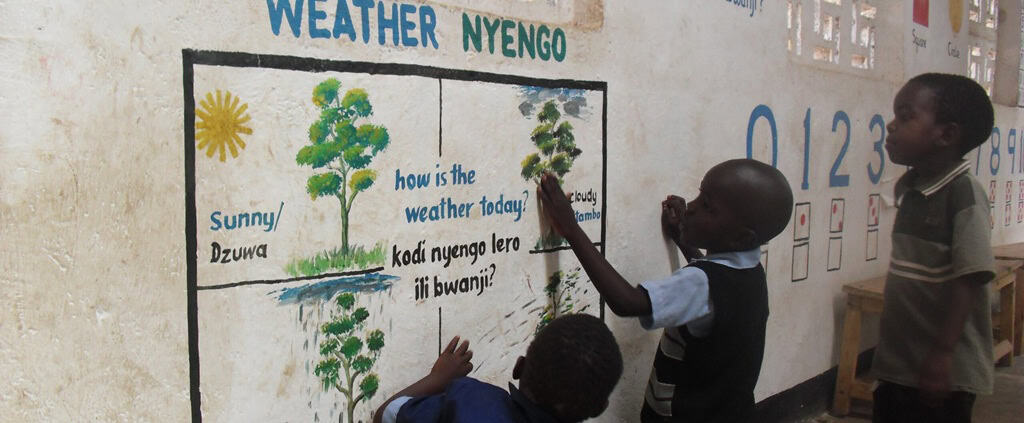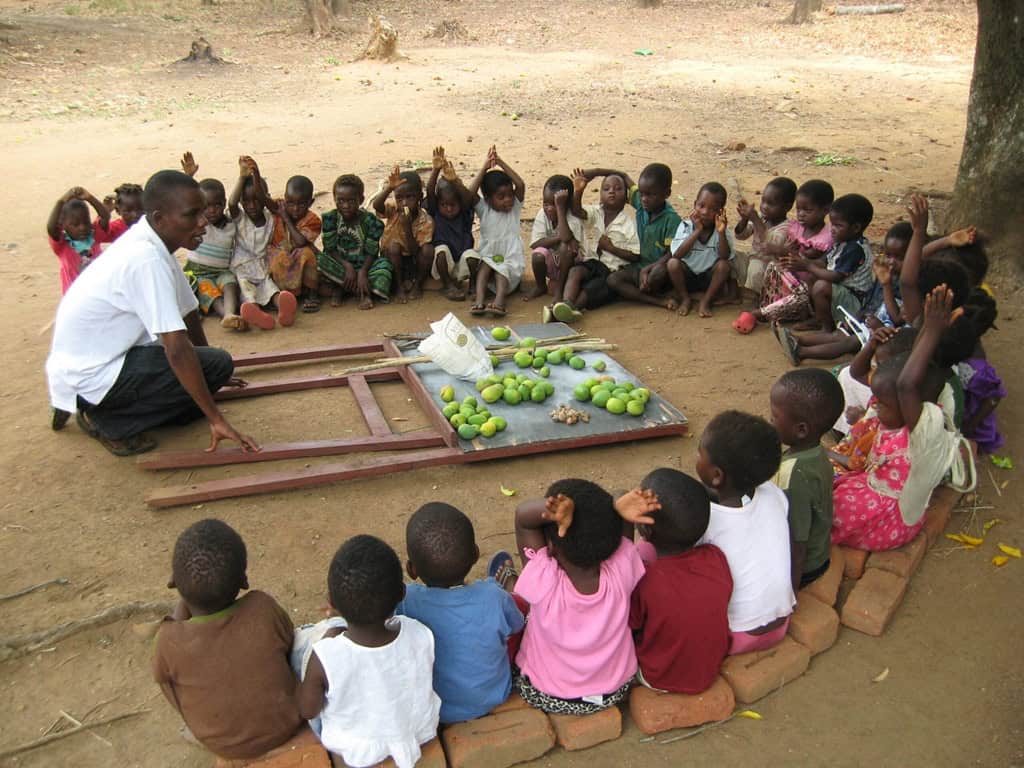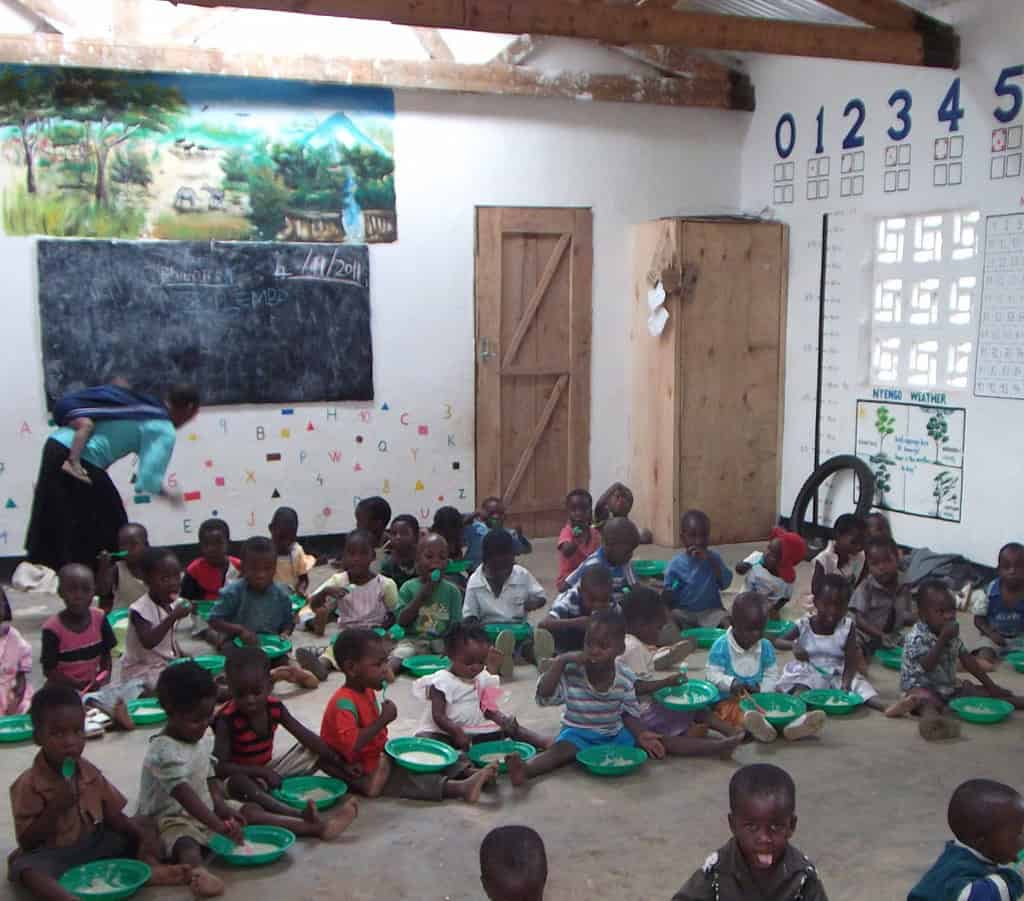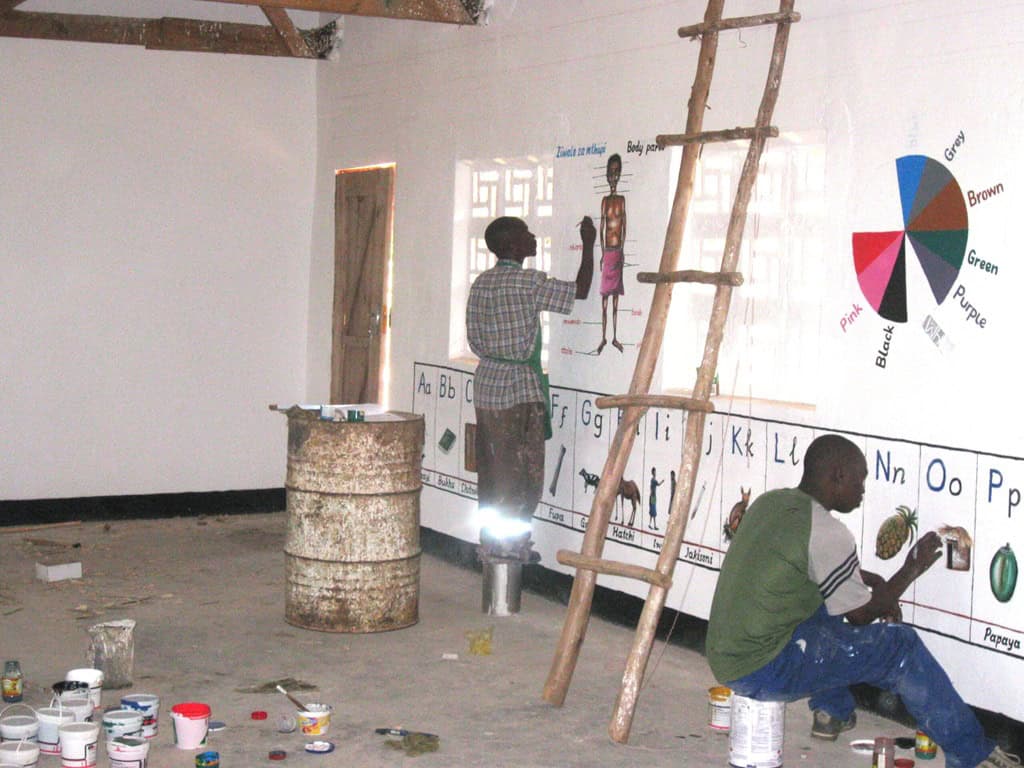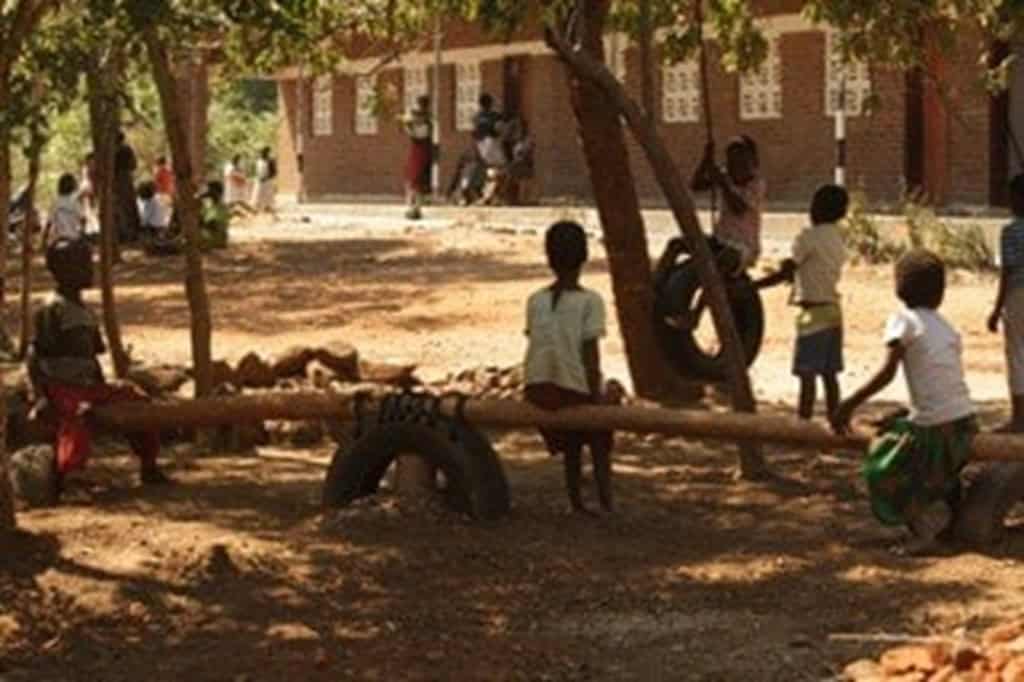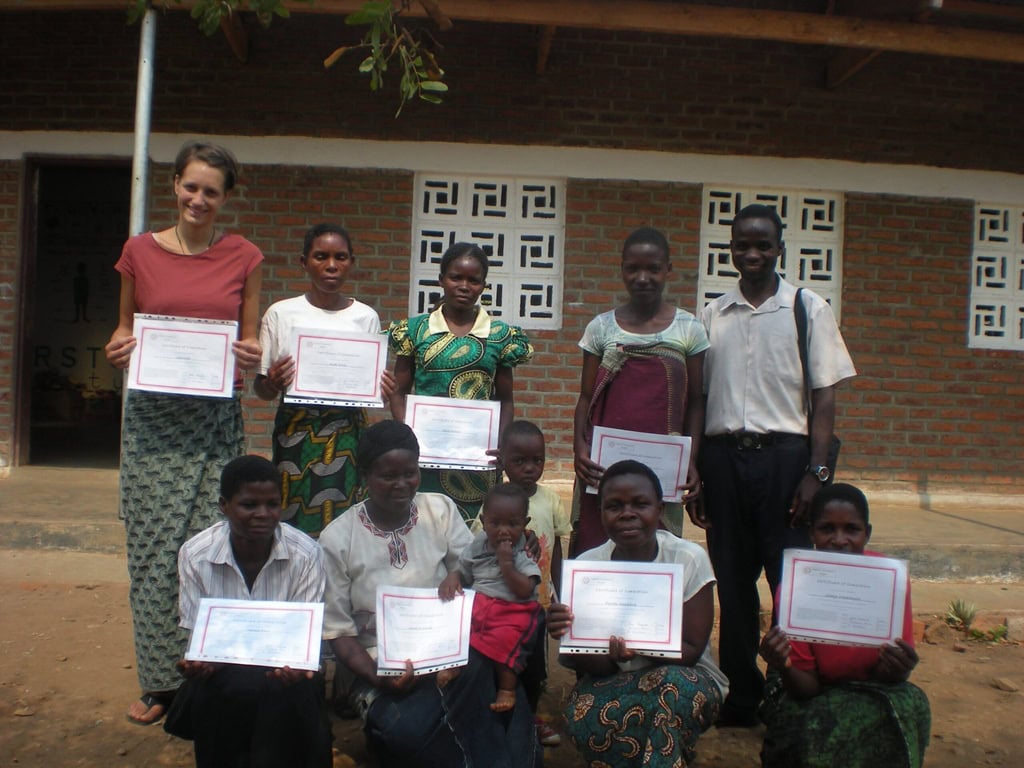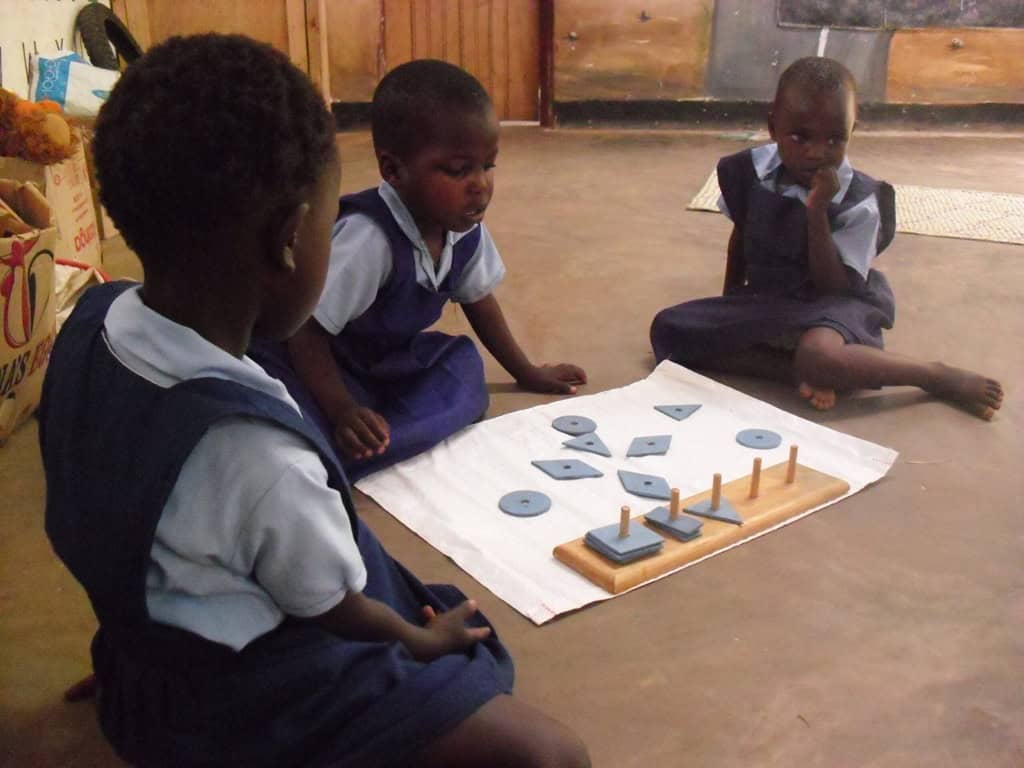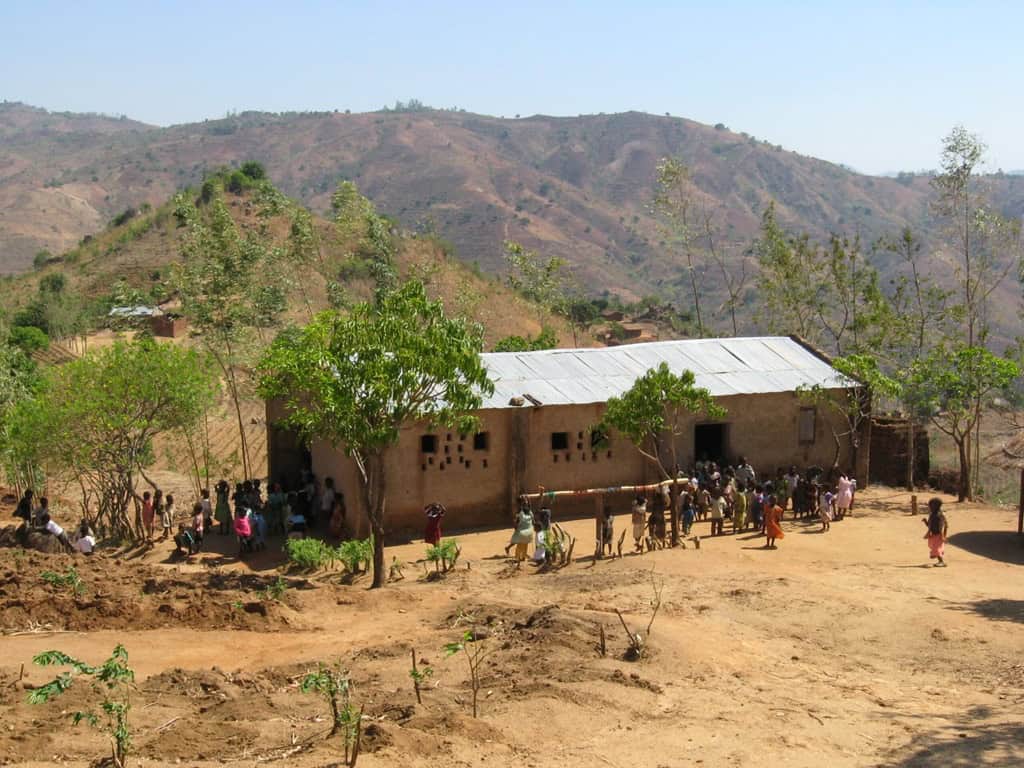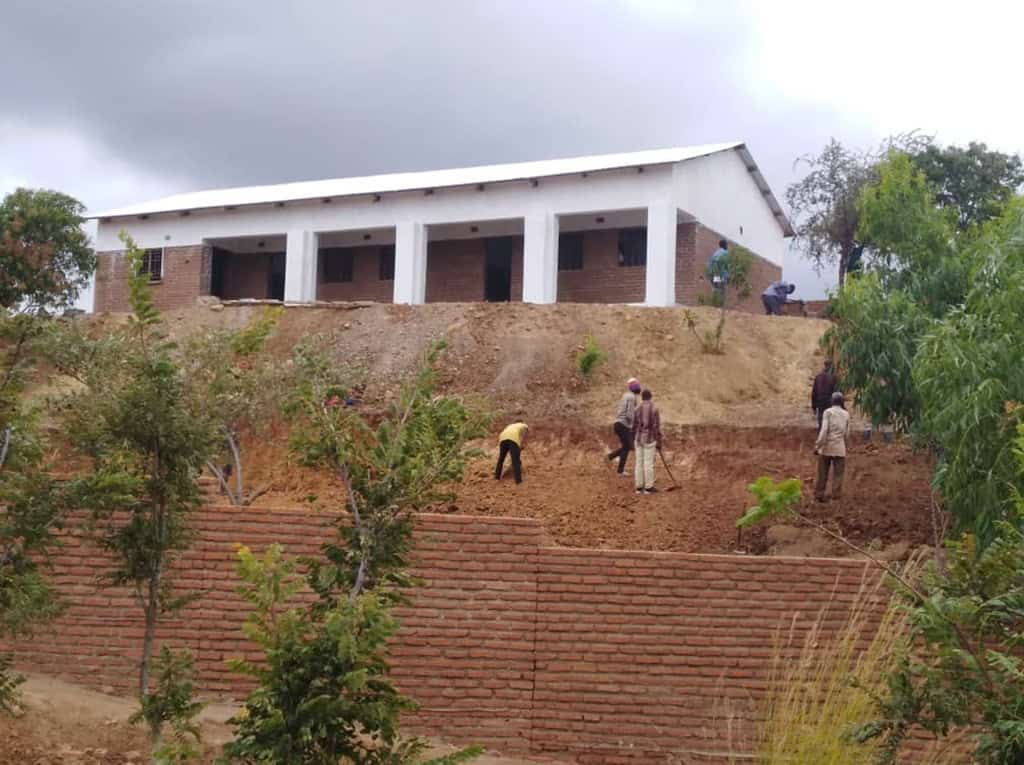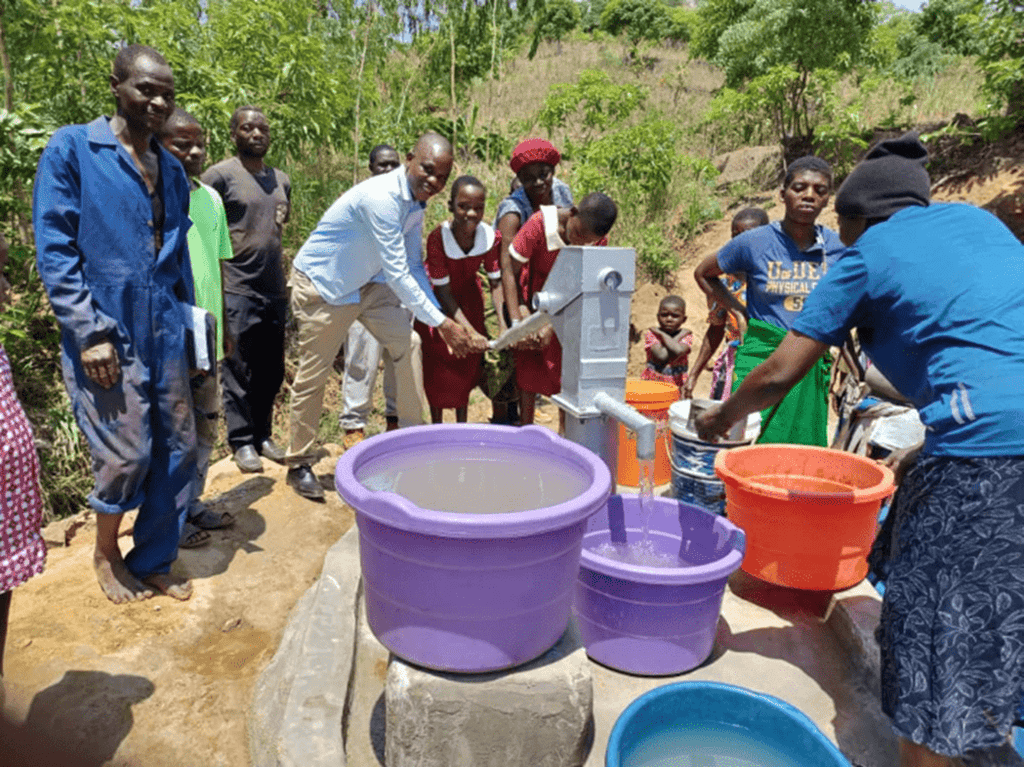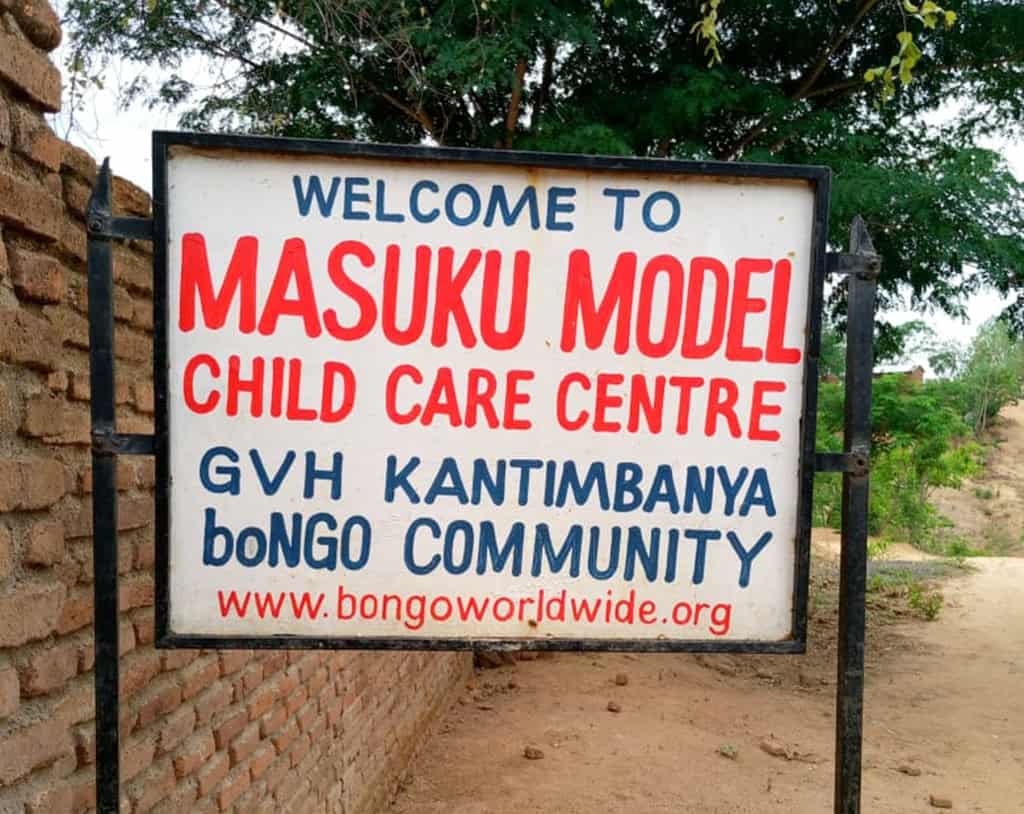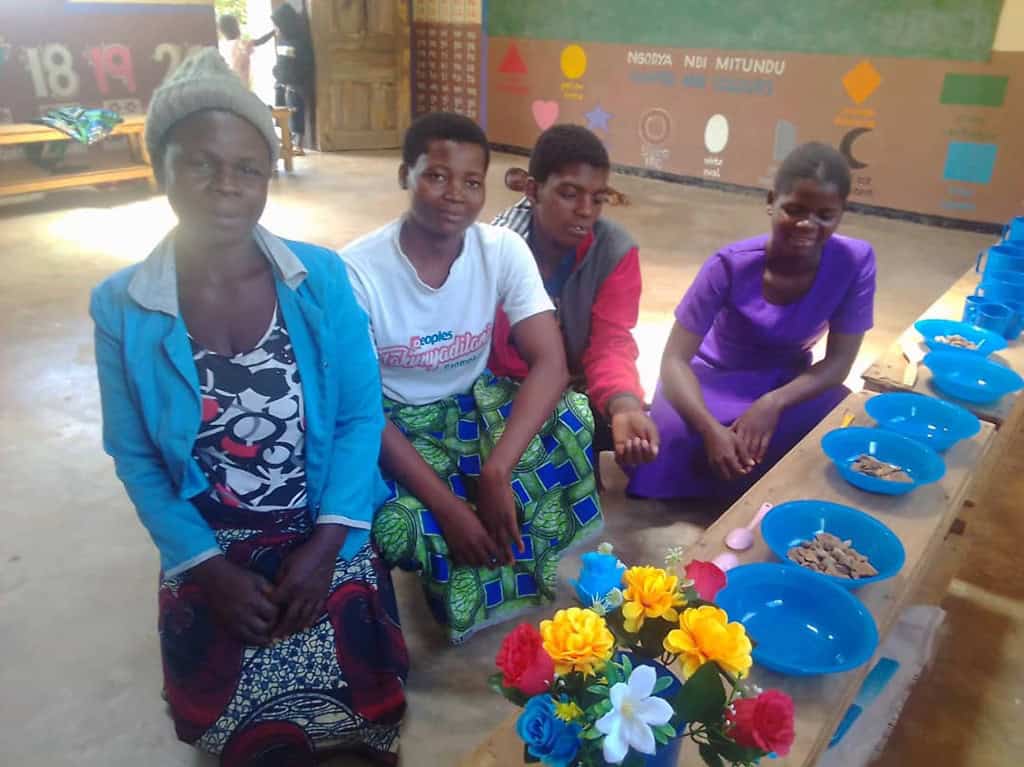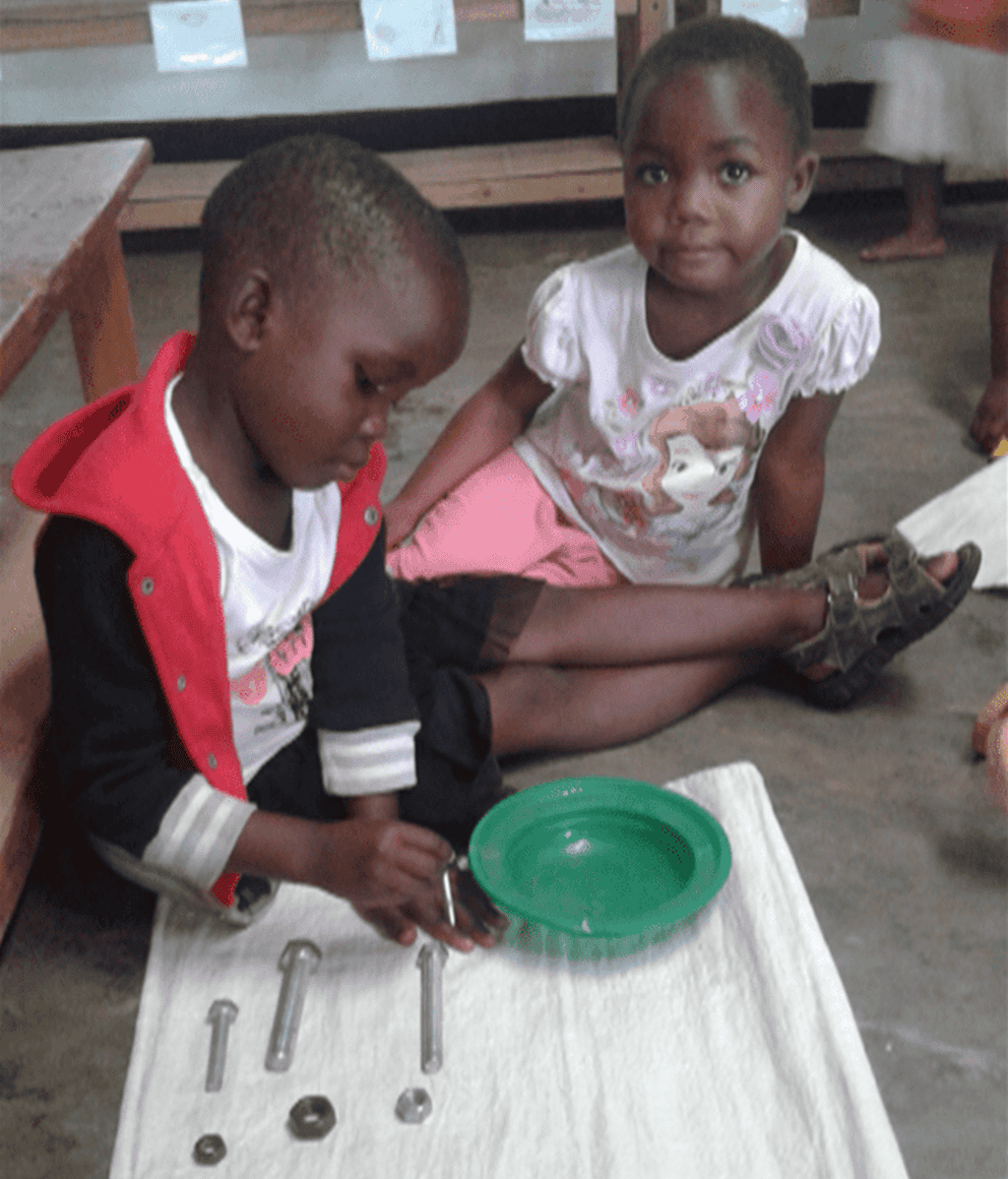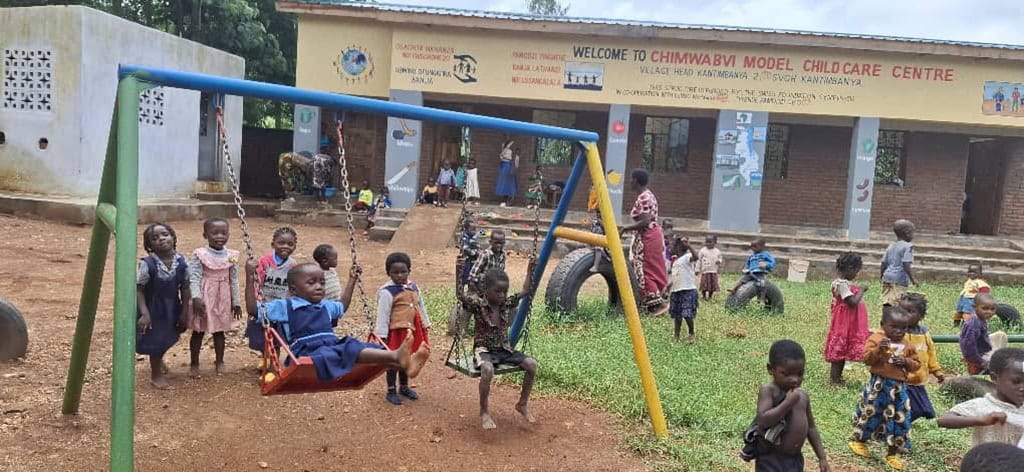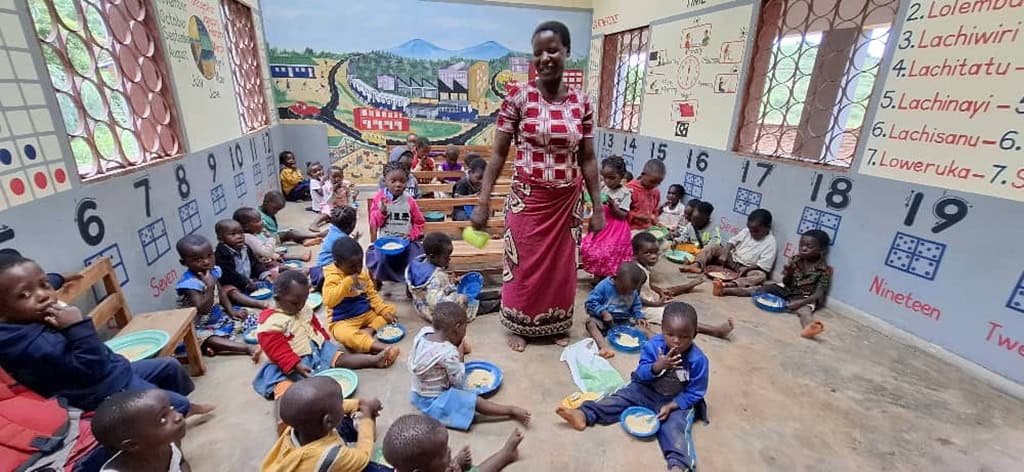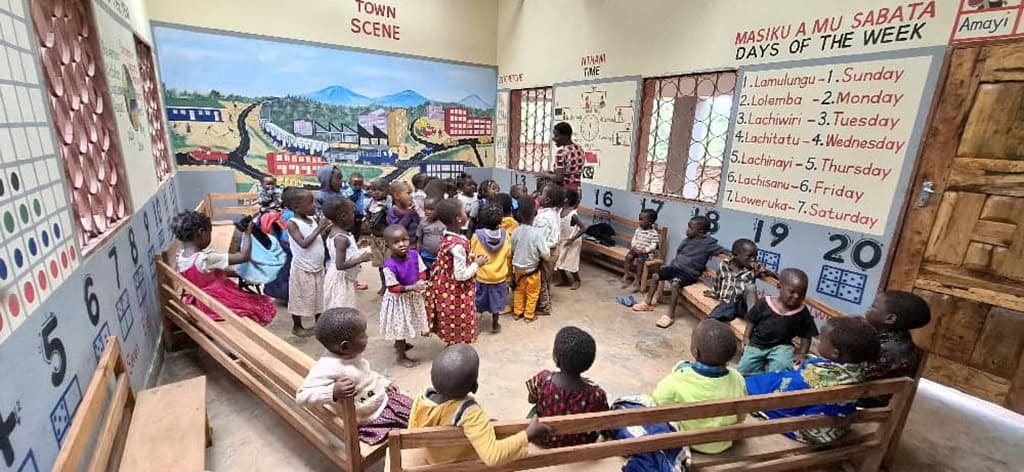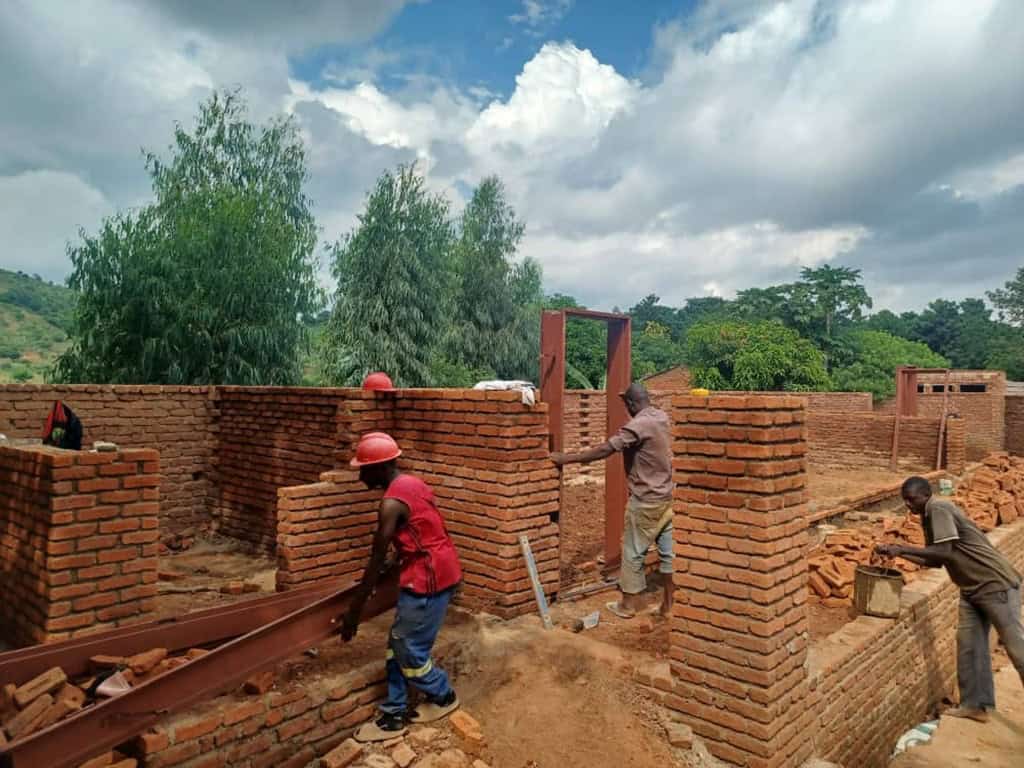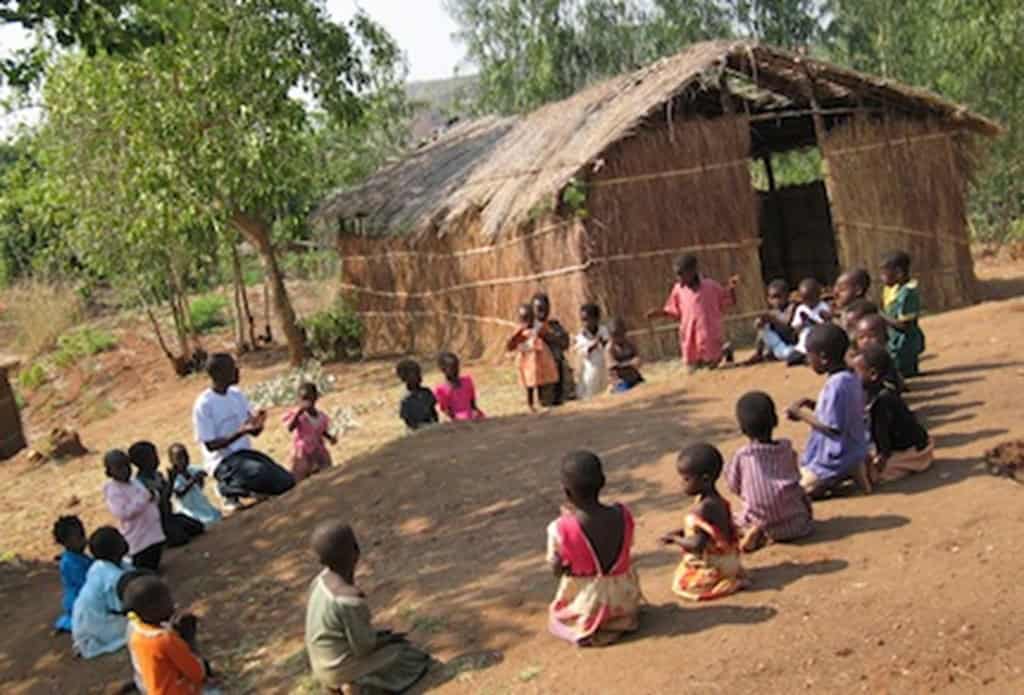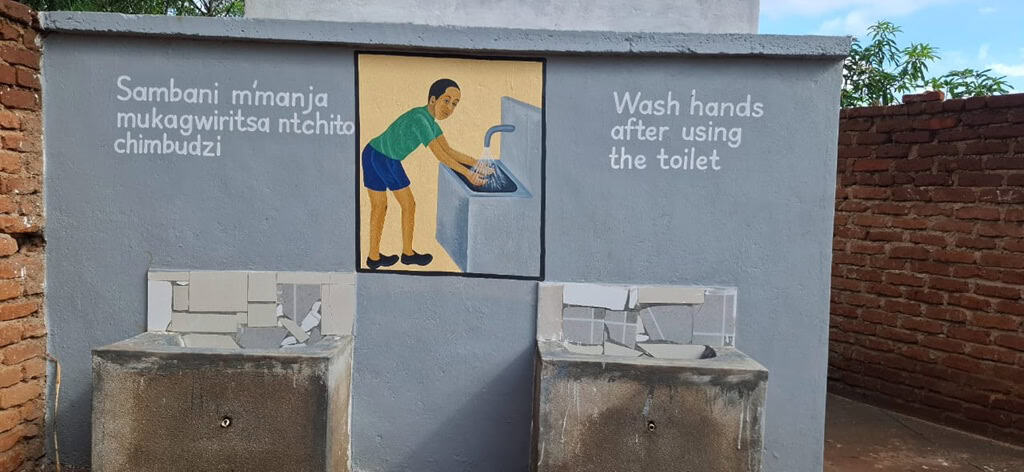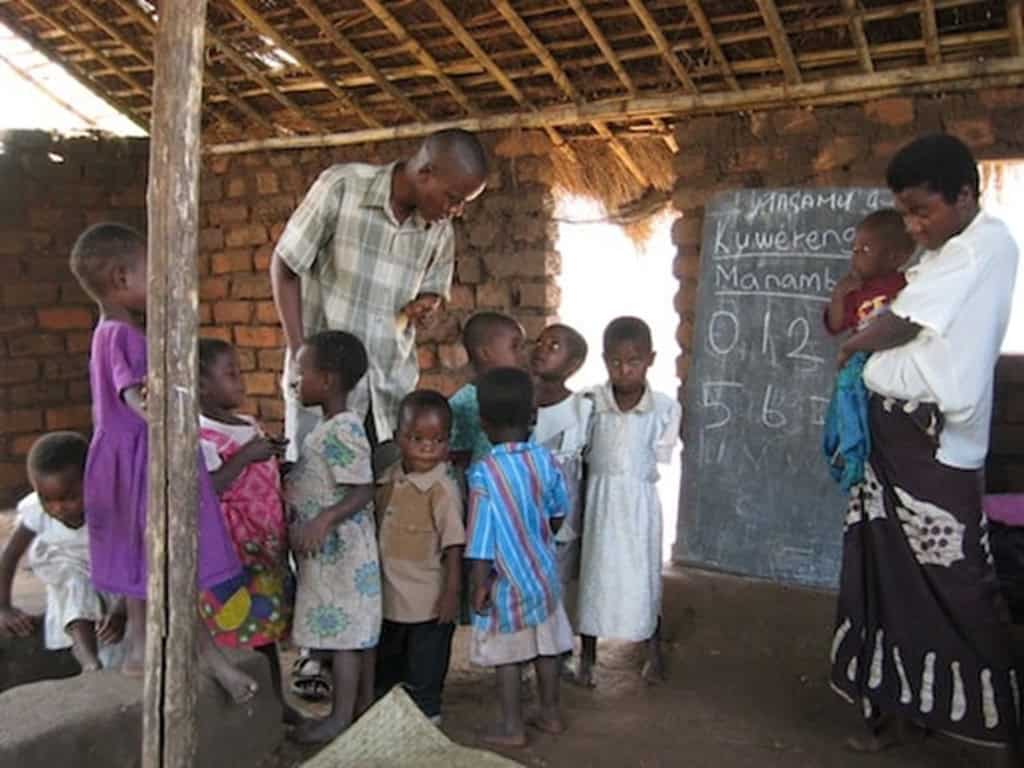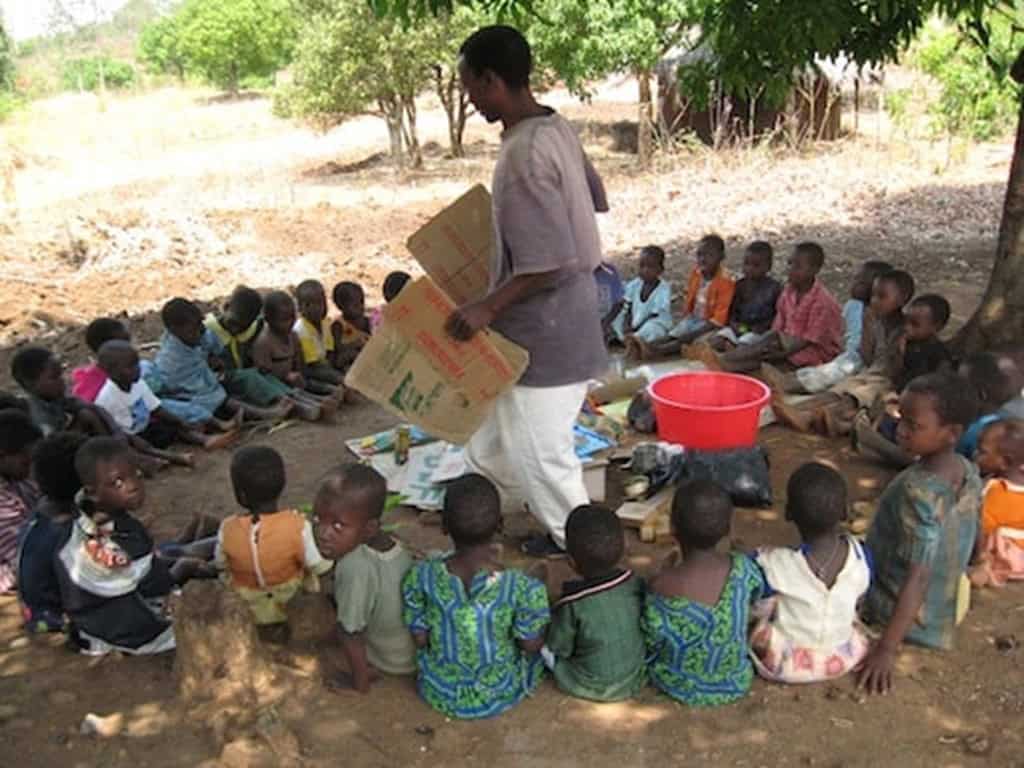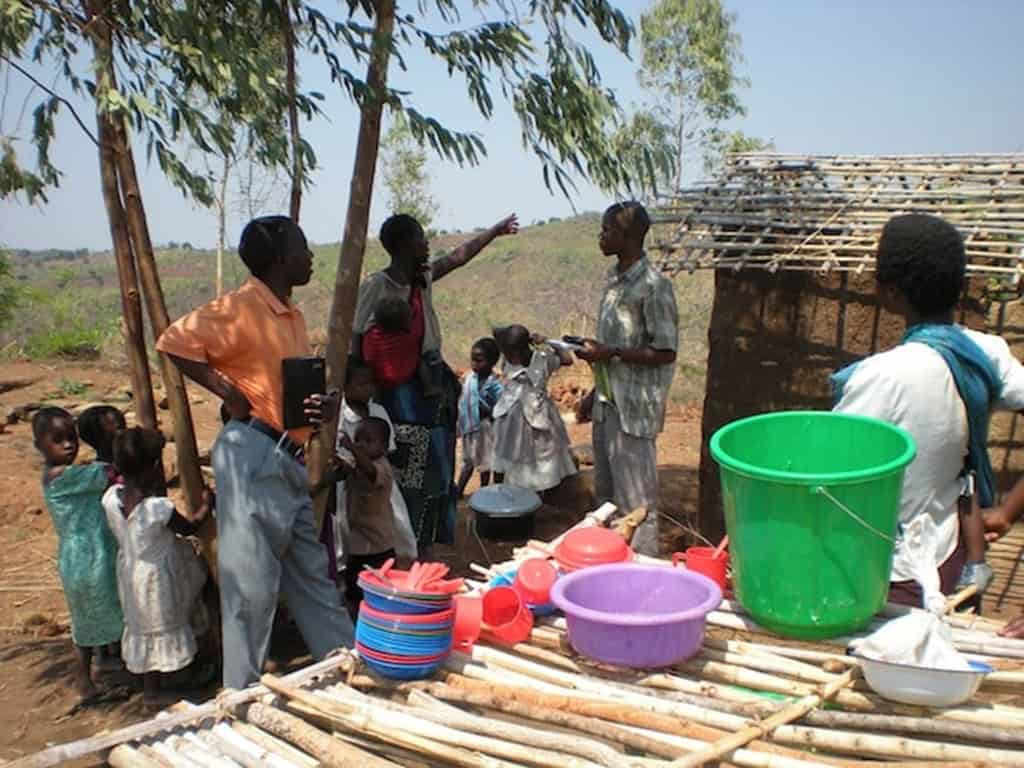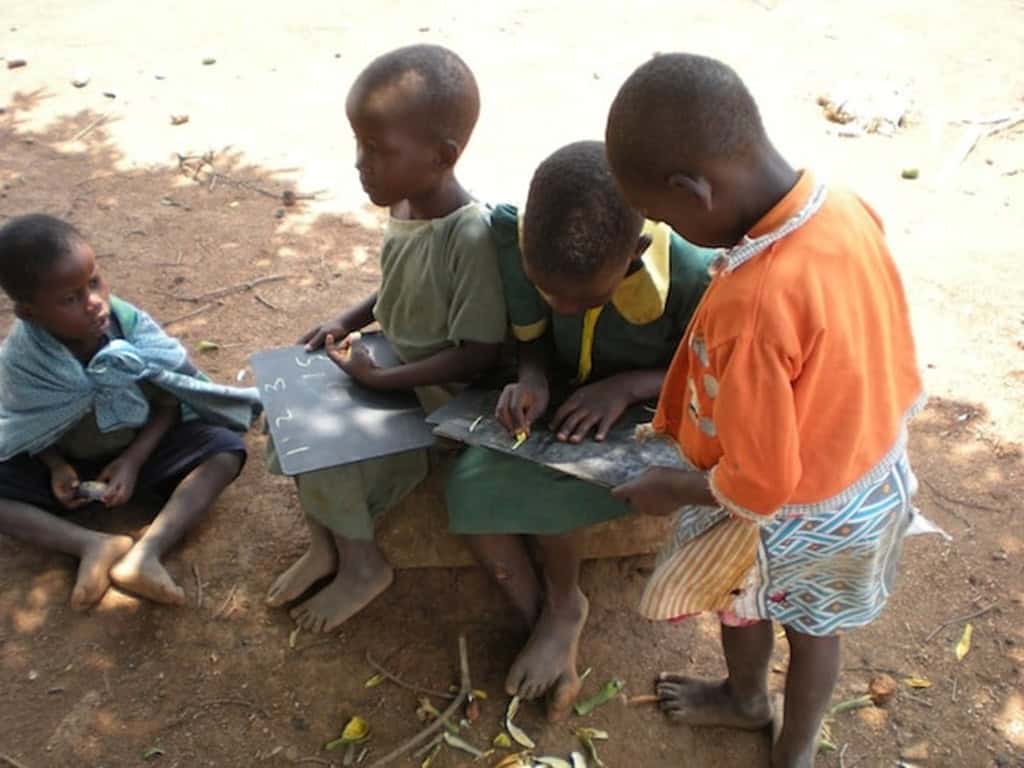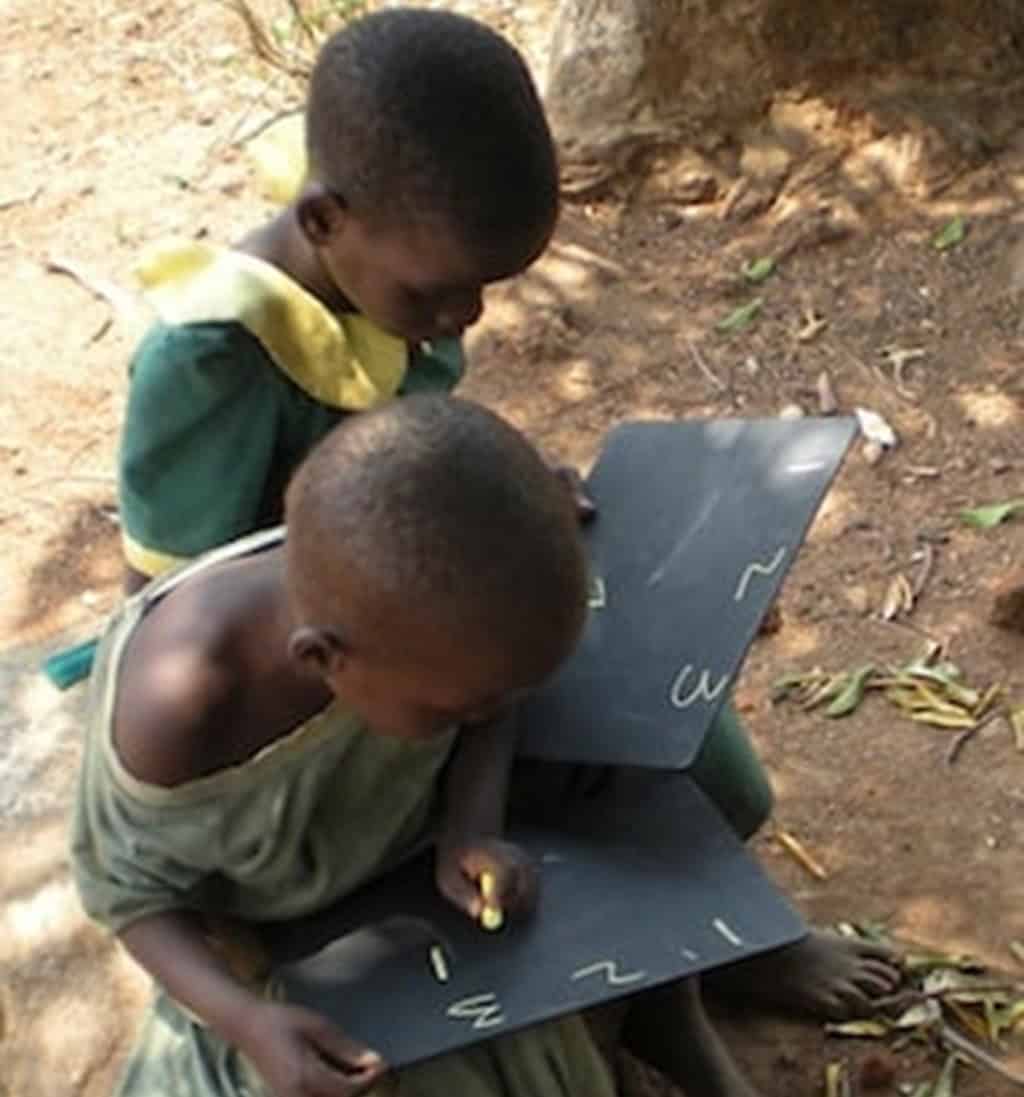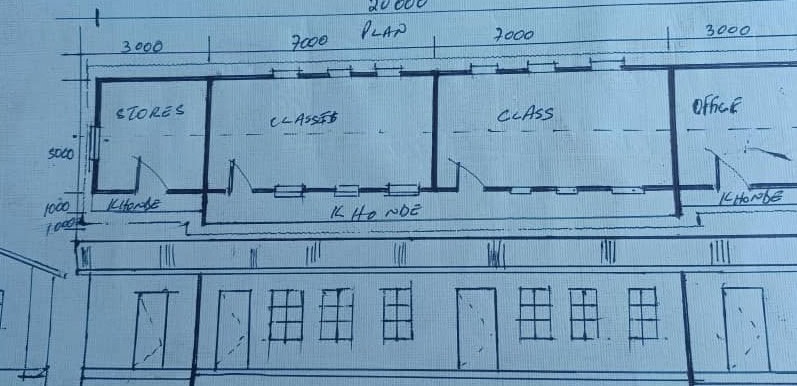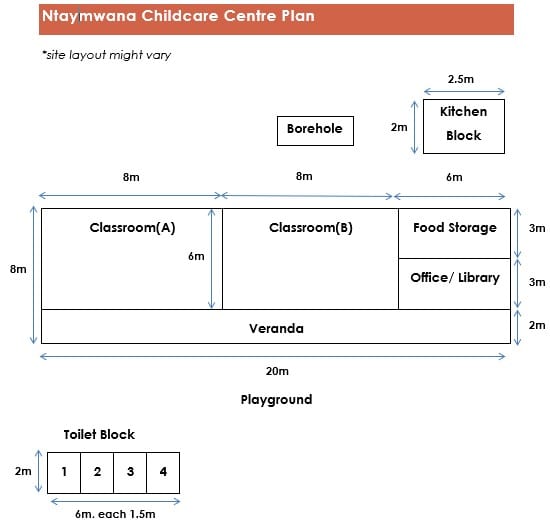EARLY EDUCATION
Children aged 3-6 years
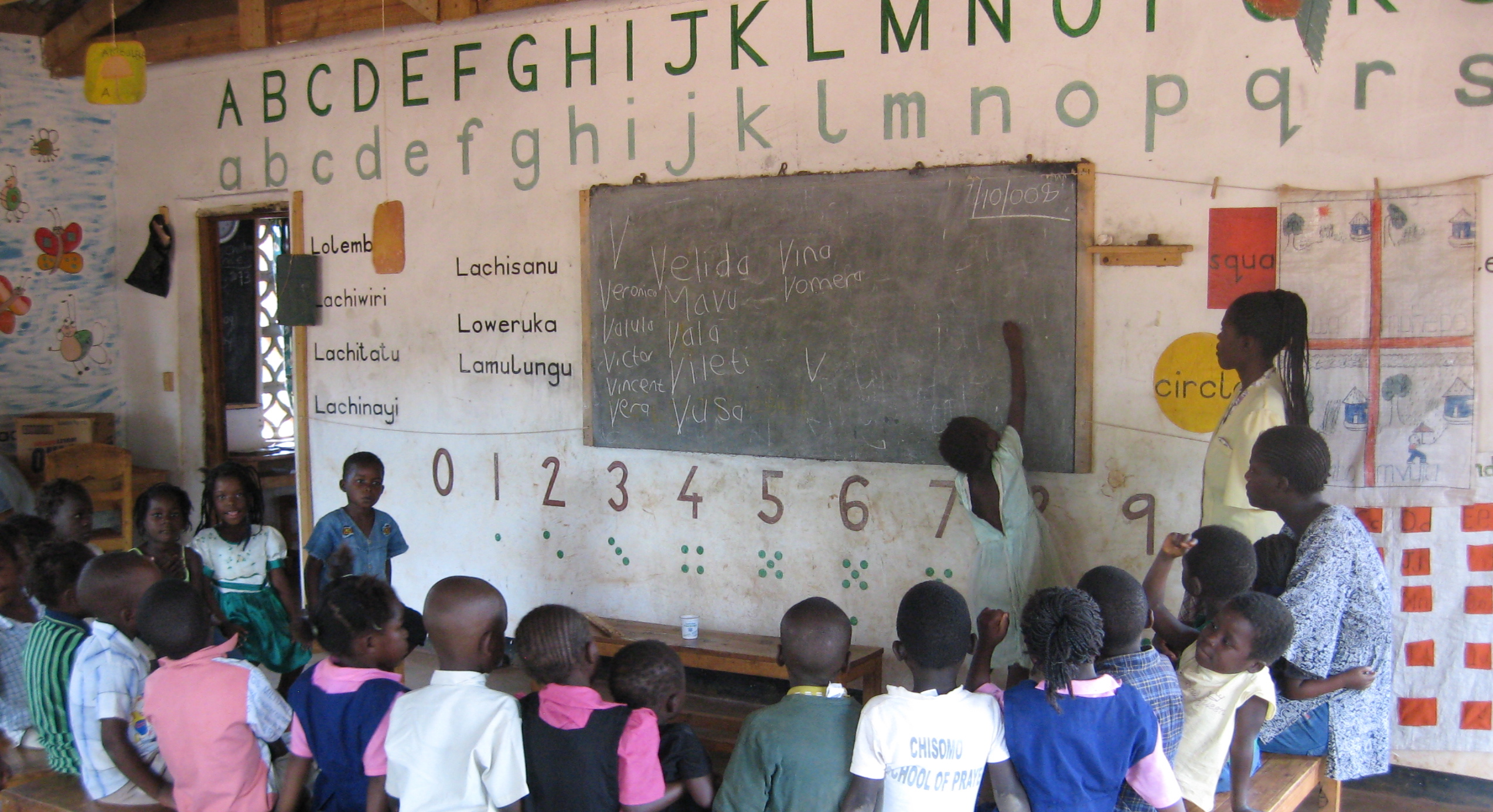
Early education helps children develop their skills and social readiness needed for primary school and life. Our mission is to raise the standards of early education provided in Malawi. To achieve this, we establish and support Model Childcare Centres that deliver high-quality education while providing ongoing teacher training and supervision. We foster strong, collaborative relationships with communities around the childcare centres, emphasizing a grassroots, self-help approach that encourages ownership and sustainability.
boNGO’s vision is to establish a Model Childcare Centre in each of Malawi’s 28 districts, creating a network that can provide teacher-training and support to childcare centres across the country.
EARLY CHILDHOOD EDUCATION IN MALAWI in 2025
In Malawi, only about 35% of children aged three to six have access to early childhood education. Most attend one of the country’s 12,000 community-based childcare centres (CBCCs), which typically operate Monday to Friday, from 8 a.m. to 12 p.m.
These centres often lack proper buildings, teaching materials, and toys, and some hold classes under trees. They are usually initiated by local leaders who understand the value of early education but lack the resources and experience to manage them effectively.
Teaching is done by volunteers, many of whom have no formal training and work without pay, leading to high turnover. Although some CBCCs receive support from NGOs or local government, most struggle to meet basic needs. Lessons focus on basic literacy and numeracy, taught through rote memorization, limiting opportunities for play and exploration.
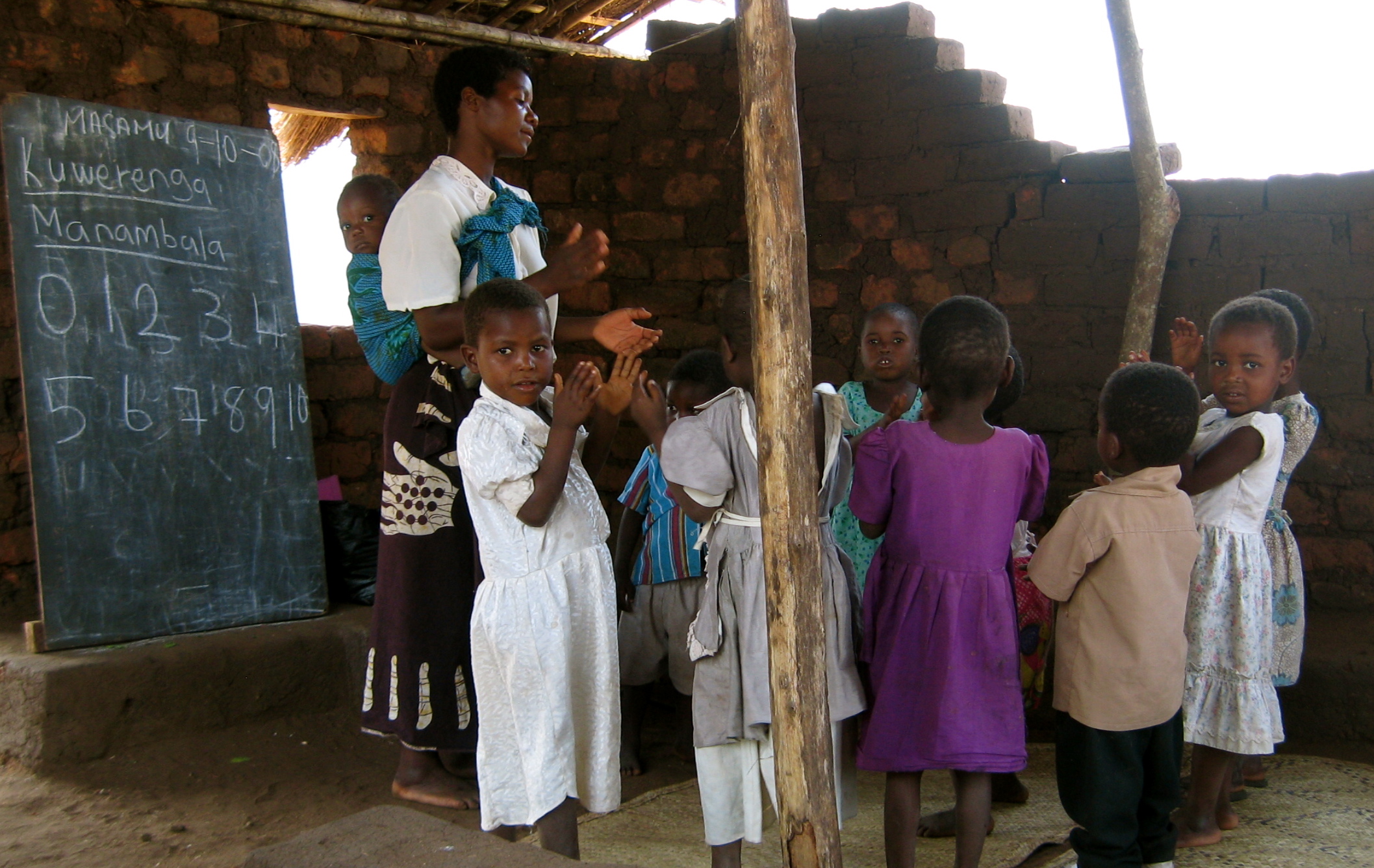
The government is working on a comprehensive early childhood education policy to establish standards for curriculum, teacher training, nutrition, infrastructure, and funding. Despite these challenges, CBCCs provide thousands of children with essential learning opportunities, helping them start primary school better prepared.
About Model Childcare Centres in Malawi
- child-friendly school building and stimulating playground
- continuously trained and supervised teachers receiving a monthly allowance (45 000-70 000 MK; USD 26–40) which will increase if funding allows
- dedicated School Management Committee which regularly meets to address key issues
- at least fortnight monitoring visits from boNGO
- child : teacher ratio of maximally 20:1
- parents helping with daily cooking and cleaning
- selection of teaching and playing materials handcrafted in boNGO carpentry workshop (photo-gallery:Facebook)
- daily nutritious meal for every child
- teacher-training opportunities for other childcare centres (photo gallery: Facebook)
- the potential to serve as a community centre where other activities take place such as library, under five clinic, youth club, adult education (agriculture, health workshops etc.) and community meetings
About Model Childcare Centres in Malawi
Eighteen years of experience show that children graduating from the Model Childcare Centres do very well at primary schools; they are comfortable in a classroom setting and have established a good foundation for reading, writing, counting and further intellectual development.
How early education should not look
A Montessori session at the Model Childcare Centre, Umodzi
In September 2024 we had 195 children graduating to the national Standard 1 across the five centres enabling them to start state primary school. A small Graduation Ceremony took place at each of the five centres.

boNGO works with five childcare centres: two are Model Childcare Centres, and three are working towards that status.
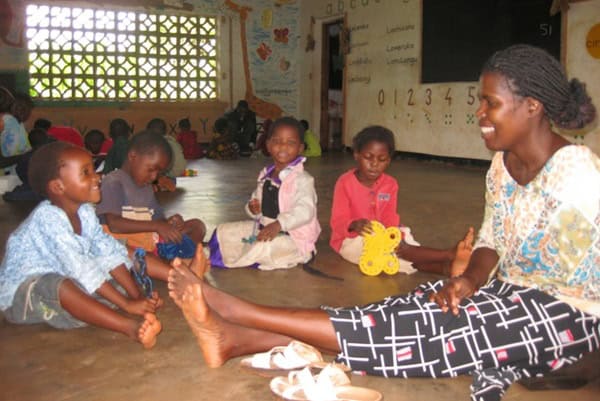
Umodzi
Model Childcare Centre
Umodzi in 2009
See additional photos: boNGO Worldwide Facebook.
The Model Childcare Centre Umodzi in the village Juma was built in 2006 and started to operate in October 2006. Unlike other boNGO´s Childcare Centres, the Umodzi centre was originally initiated by the boNGO team. This fact brought a problem – the community involvement was low and unreliable, and it took a lot of effort to set up an engaged School Management Committee that could voluntarily look after the centre and its operation. The situation taught boNGO an important lesson – community-based childcare centres can only be successful and sustainable if the community itself is both the initiator and active leader of the development.
Between 2005 and 2008 the boNGO team lived right next to the childcare centre in Juma to oversee and support its development.
In 2025 Umodzi is attended by 130 children who are taken care of by 12 teachers.
Important milestones in Umodzi’s history
- 2006 – The school building was completed, 80 children enrolled, and 4 teachers were employed.
- 2007 – The School Management Committee was established.
- 2006–2010 – Teachers received extensive training and supervision from boNGO and other organizations. During this time, a Teachers’ Manual was developed in cooperation with the teachers, suitable for guiding even inexperienced and untrained teachers. It was written in Chichewa, the national language of Malawi.
- Since 2007 – Local youths have been meeting at the Umodzi Centre for various group activities.
- 2007–2011 – The boNGO team and Umodzi teachers provided training workshops for 11 other childcare centres.
- 2011 – A community library was set up.
- 2012 – Umodzi teachers attended Montessori training at the Malawi Montessori Project and have since integrated Montessori teaching methods into their lessons (video: Montessori session at Umodzi Centre).
- 2012/2013 – The Umodzi Centre partnered with the private Montessori preschool Mini Me in Blantyre. Together, they developed a “school linking project” aimed at fostering understanding of Malawi’s diverse life and building relationships across economic and social differences.
- 2016 – A Carpentry Workshop was established next to the Umodzi Centre to produce wooden learning materials, intended for sale to middle- and high-income schools and individuals in town to generate income. The project is still developing its full potential.
Monthly budget: $1,150 – including food for children, allowances for teachers, supervision and teacher training, learning and teaching materials, building maintenance, and other expenses necessary for the development of the centre.
Visit the Umodzi Centre
Umodzi is located in Juma village (jurisdiction of Somba), traditional authority along the Chikwawa Road (M1), about 15 km south of Blantyre. The centre is on the left-hand side between Chadzunda Market and Mirale Police Station. It is well-marked and situated approximately 1 km off the main road.
The teachers are accustomed to visitors and will be happy to show you around the school.
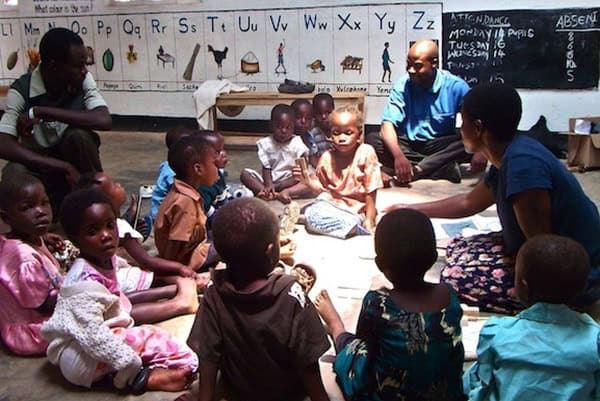
Mango
Model Childcare Centre
Mango in 2007 when it operated under a Mango tree
See additional photos: boNGO Worldwide Facebook
The Mango Model Childcare Centre is one of four centres initiated by community leaders in Kantimbanya village in 2002. In 2007, they approached boNGO for support to improve their centres and train their teachers. The centre is called Mango after the mango grove surrounding it.
In 2025, Mango is attended by 115 children, cared for by 5 teachers.
Important milestones in Mango’s history
- 2002 – Initiated by the local community, originally operating under a mango tree.
- 2007 – Community leaders approached boNGO for partnership.
- 2008–2010 – Mango teachers attended training at the Model Childcare Centre Umodzi, and have since continued receiving regular teacher training and supervision from boNGO.
- 2009 – A borehole was drilled next to the Mango Centre with funding from the Swiss organization Ostschweizer helfen Ostschweizern, providing a much-needed source of drinking water.
- 2010 – A proper school building was constructed with support from the Dutch Embassy in Zambia and major voluntary involvement from local villagers.
- 2012 – A community library was established.
- 2012 – Mango teachers attended Montessori training at the Malawi Montessori Project, and have since been integrating Montessori philosophy and teaching methods into their lessons.
- Since 2021 – Two experienced teachers from Mango have been based in Masuku Childcare Centre, where they provide training to other teachers.
- February 2023 – The centre served as a temporary shelter for people who lost their homes during Cyclone Freddy.
Monthly budget: $1,150 – including food for children, allowances for teachers, supervision and teacher training, learning and teaching materials, building maintenance, and other expenses necessary for the development of the centre.
Visit the Mango Centre
The Mango Centre is located along the Chikwawa Road (M1) in Kantimbanya village (jurisdiction of Somba), about 25 km south of Blantyre. It is on the left-hand side, between the mosque and Madziabango Market, and is clearly marked from the main road.
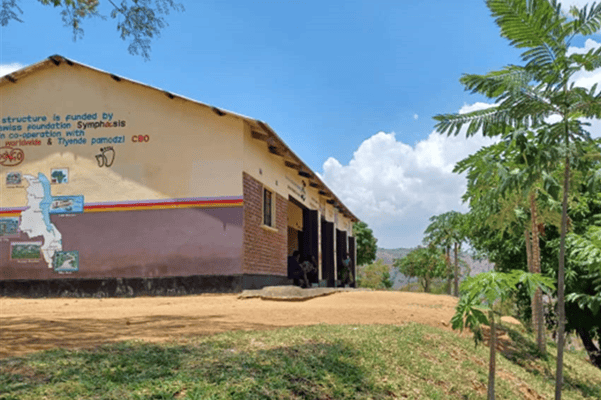
Masuku
Model Childcare Centre
Masuku in 2008 when it operated in a village church
Masuku in 2022 (washing hands before lunch) (3) Facebook
Masuku in 2022 (lunch time) (3) Facebook
See additional photos: boNGO Worldwide Facebook
The Masuku Childcare Centre is one of four centres initiated by community leaders in Kantimbanya village in 2002. In 2007 they approached boNGO for support to improve their childcare centres and train their teachers.
The teachers receive intensive training and supervision as part of the effort to help the centre reach the status of a Model Childcare Centre.
In 2025, Masuku is attended by 122 children, cared for by 6 teachers.
Important milestones in Masuku’s history
2002 – Initiated by the local community, originally operating in a church.
2008–2010 – Masuku teachers attended training at the Umodzi Model Childcare Centre and have since continued to receive regular teacher training and supervision from boNGO.
2012 – Masuku teachers attended Montessori training at the Malawi Montessori Project and have since integrated Montessori philosophy and teaching methods into their lessons.
2020 – A proper school building, playground, and borehole were constructed with funding from the Swiss foundation Symphasis and significant voluntary involvement from the community. The borehole provides clean drinking water for the surrounding area.
Since 2021 – Two experienced teachers from Mango have been based at Masuku, where they train and supervise the Masuku teaching team.
2023–2024 – Masuku teachers completed the first phase of the boNGO Montessori Teacher Training Programme, and the school received basic Montessori materials. Training will continue once additional funding is secured.
Monthly budget: $1,150 – including food for children, allowances for teachers, supervision and teacher training, learning and teaching materials, building maintenance, and other expenses necessary for the development of the centre.
Visit the Masuku Centre
The Masuku Centre is located approximately 8 km from the Chikwawa Road (M1) in Kantimbanya village (T/A Somba), about 25 km south of Blantyre. If you would like to visit Masuku, please contact us for arrangements.
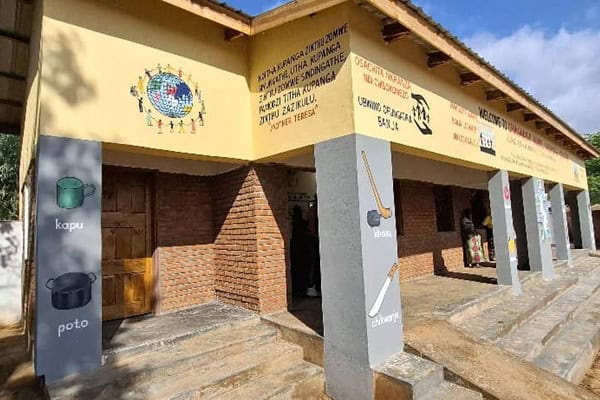
Chimwabvi
Childcare Centre
Chimwabvi in 2007 when it operated in a grass-thatched church
See additional photos: boNGO Worldwide Facebook
The Chimwabvi Childcare Centre is one of four centres initiated by community leaders in Kantimbanya village in 2002. In 2007 they approached boNGO for support to improve their centres and train their teachers.
In 2025, Chimwabvi is attended by 80 children, cared for by 3 teachers. The teachers receive intensive training and supervision to help the centre reach the status of a Model Childcare Centre.
Important milestones in Chimwabvi’s history
2002 – Initiated by the local community, originally operating in a grass-thatched church.
2008–2010 – Chimwabvi teachers attended training at the Umodzi Model Childcare Centre and have since continued to receive regular teacher training and supervision from boNGO.
2012 – Chimwabvi teachers attended Montessori training at the Malawi Montessori Project and have since integrated Montessori philosophy and teaching methods into their lessons.
2024 – A proper school building, playground, and borehole was constructed, with funding from the Swiss foundation Symphasis and major voluntary involvement from local villagers. The borehole provides clean drinking water to the surrounding community.
Monthly budget: approximately $1,150 – including food for children, allowances for teachers, supervision and teacher training, learning and teaching materials, building maintenance, and other expenses necessary for the development of the centre.
Visit the Chimwabvi Centre
The Chimwabvi Centre is located approximately 12 km from the Chikwawa Road (M1) in Kantimbanya village (jurisdiction of Somba), about 25 km south of Blantyre. If you would like to visit Chimwabvi, please contact us to make arrangements.
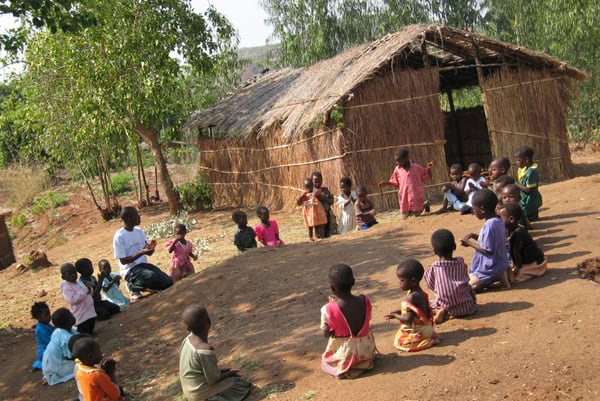
Ntayamwana
Childcare Centre
Ntayamwana in 2007 when it operated in a grass-thatched church
Photogallery on (3) Facebook
Raising Funds for a Proper School Building
We are currently raising funds for the construction of a proper school building, which will include a kitchen, toilets, a playground, and a borehole to provide safe drinking water for the local community.
Floor plan:
The Nthayamwana Childcare Centre is one of four centres initiated by community leaders in Kantimbanya village in 2002. In 2007, the community approached boNGO for support to improve their childcare services.
The centre currently operates from under a tree. boNGO supports the centre through regular supervision visits, ongoing teacher training, teacher salaries, and daily meals for the children.
In 2025, Ntayamwana is attended by 60 children, cared for by 2 teachers.
Important milestones in Nthayamwana’s history
2002 – Initiated by the local community, originally operating in a grass-thatched hut.
2008–2010 – Nthayamwana teachers attended training at the Model Childcare Centre Umodzi and have since continued to receive regular teacher training and supervision from boNGO.
2012 – In 2012 the Ntayamwana teachers attended a Montessori Training at the Malawi Montessori Project and have since been integrating the Montessori training into their lessons and teaching methods.
2016–2017 – Centre was temporarily closed.
2018 – Activities resumed in a local church, which was later destroyed in March 2023 during Cyclone Freddy.
2023–2025 – The centre has been operating under a tree.

